
Preclinical data show promise for the novel non-covalent Bruton tyrosine kinase inhibitor pirtobrutinib in mantle cell lymphoma with resistance to both ibrutinib and venetoclax.

Your AI-Trained Oncology Knowledge Connection!


Preclinical data show promise for the novel non-covalent Bruton tyrosine kinase inhibitor pirtobrutinib in mantle cell lymphoma with resistance to both ibrutinib and venetoclax.

A quality-of-life analysis from the phase 3 ZUMA-7 trial of axicabtagene ciloleucel in patients with relapsed or refractory large B-cell lymphoma shows favorability of the CAR T-cell therapy over standard options.
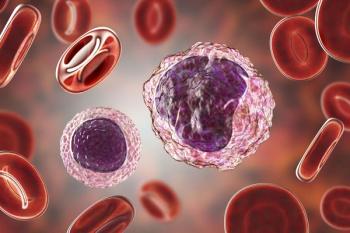
Data presented at 2021 ASH indicate that 2-year progression-free survival rates were improved when ibrutinib was added to rituximab plus mini-CHOP in an elderly cohort of patients with previously untreated diffuse large B-cell lymphoma.
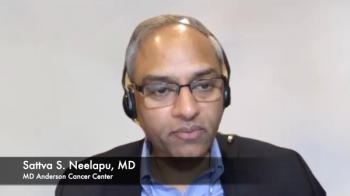
Sattva S. Neelapu, MD, spoke about the ZUMA-5 trial and the long-term follow-up results seen with axicabtagene ciloleucel in patients with relapsed or refractory indolent non-Hodgkin lymphoma.
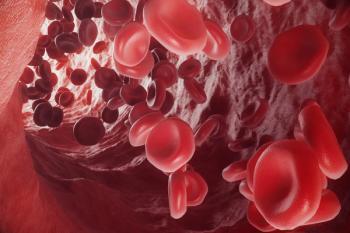
Patients with autologous stem cell transplant–ineligible relapsed/refractory diffuse large B-cell lymphoma appear to benefit from treatment with tafasitamab and lenalidomide.

Anti-tumor activity coupled with a manageable safety profile was noted with the combination of ibrutinib plus loncastuximab tesirine for patients with relapsed/refractory (R/R) diffuse large B-cell lymphoma at an interim analysis of the LOTIS-3 trial presented at 2021 ASH.

Durable clinical responses were demonstrated with the use of parsaclisib in patients with relapsed or refractory marginal zone lymphoma.

Mosunetuzumab given to patients with heavily pretreated patients with relapsed or refractory follicular lymphoma demonstrated an effective response.
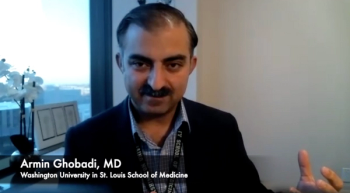
An expert in the treatment of diffuse large B-cell lymphoma explained some of the exciting advances in treatment and hypothesized what comes next after the 2020 ASH Annual Meeting & Exposition.
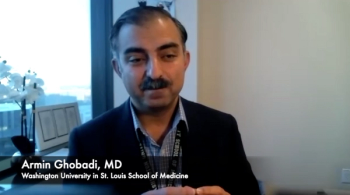
Ghobadi detailed the next steps needed to build on the results of a study presented at the 2020 American Society of Hematology Annual Meeting & Exposition.
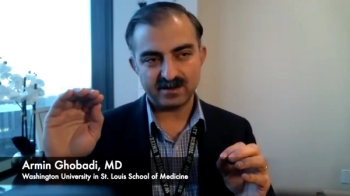
Ghobadi explained an interesting correlation found in the results of his study presented at the 2020 ASH Annual Meeting & Exposition.
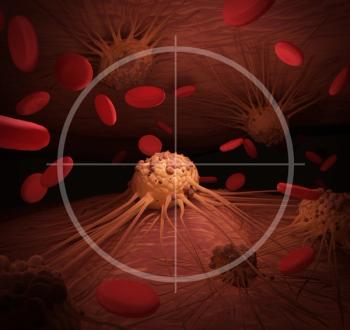
The ongoing GO29365 study of combination regimens containing polatuzumab vedotin (Polivy) for patients with relapsed or refractory diffuse large B-cell lymphoma added an additional 106 patients to confirm preliminary findings of safety and efficacy.

A recent study found a difference in preference when it came to the administration of rituximab in patients with blood cancer.
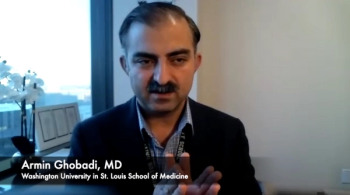
Research from a pilot trial presented at the 2020 American Society of Hematology (ASH) Annual Meeting found above average complete response and disease-free survival rates for patients with DLBCL.
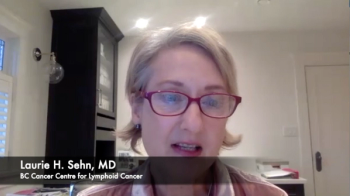
The preliminary findings of the extension arm of the phase 2 GO29365 study confirmed the benefits and tolerability of polatuzumab vedotin (Polivy) plus bendamustine (Bendeka) and rituximab (Rituxan) for patients with diffuse large B cell lymphoma.
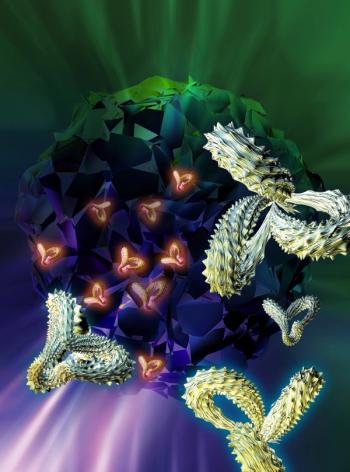
Research presented at the 2020 ASH Annual Meeting may have found an alternative path forward for patients who do not respond to immunotherapy treatment for large B-cell lymphomas.
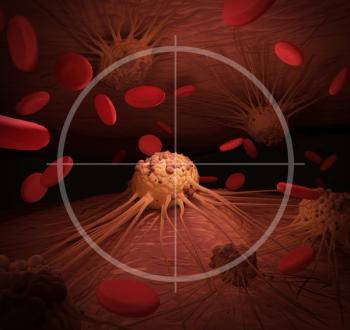
A novel ROR1-targeted antibody-drug conjugate, VLS-101, demonstrated encouraging clinical efficacy, consistent pharmacokinetics, and a favorable safety profile in patients with heavily pretreated mantle cell lymphoma and diffuse large B-cell lymphoma.

The CAR T-cell therapy axicabtagene ciloleucel demonstrated long-term disease control with rapid responses and robust CAR T-cell expansion among patients with refractory large B-cell lymphoma.
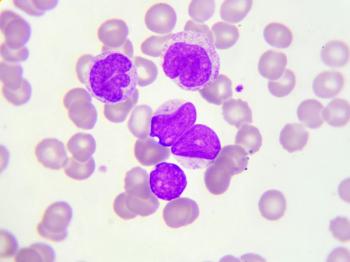
Regardless of age, Selinexor induced a clinical benefit in patients with relapsed/refractory diffuse large B-cell lymphoma.
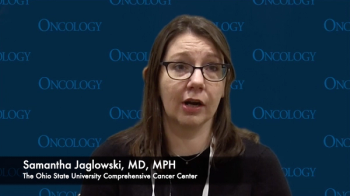
The associate professor at The Ohio State University Comprehensive Cancer Center discussed the implications of her analysis of the CAR T-cell therapy tisagenlecleucel for patients with diffuse large B-cell lymphoma at the ASH Annual Meeting & Exposition.
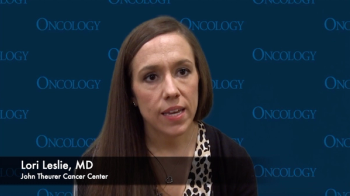
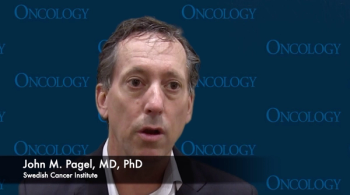
The Swedish Cancer Center expert discussed the addition of polatuzumab vedotin to a bendamustine-rituximab regimen at the ASH Annual Meeting & Exposition.
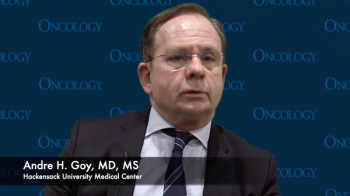
Andre H. Goy, MD, MS, from Hackensack University Medical Center, discussed ways to address the extension of survival for patients with DLBCL who achieved a complete remission at the ASH Annual Meeting & Exposition.
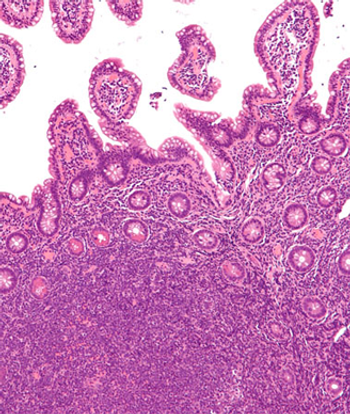
The ZUMA-II trial suggested that patients with relapsed/refractory mantle cell lymphoma resistant to prior therapies may benefit from the autologous anti-CD19 CAR T-cell therapy.
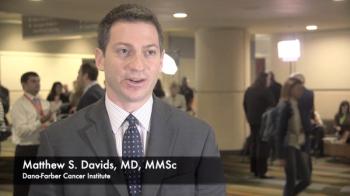
Matthew S. Davids, MD, MMSc, discussed his phase I/II study of duvalisib combined with venetoclax for patients with relapsed/refractory CLL and SLL at the ASH Annual Meeting & Exposition.
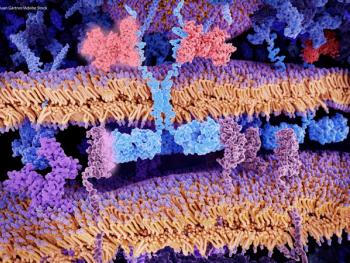
Lisocabtagene maraleucel induced high response rates in patients with aggressive relapsed/refractory large B-cell lymphoma.
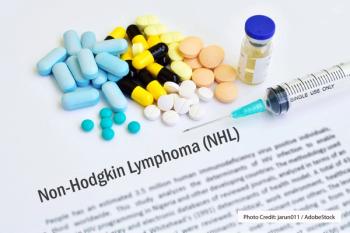
Treatment with lenalidomide and rituximab improved progression-free survival, compared with placebo in patients ≥70 years old with indolent non-Hodgkin lymphoma.
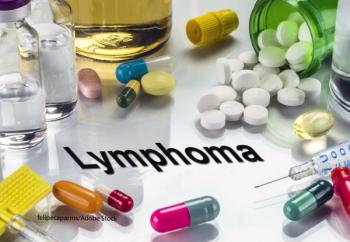
The combination use of polatuzumab-vedotin, obinutuzumab, and lenalidomide showed high complete response rates in patients with relapsed/refractory follicular lymphoma.

Mosunetuzumab generated durable responses in patients with highly refractory non-Hodgkin lymphomas.

The CAR T-cell therapy axicabtagene ciloleucel induced a median overall survival of 25.8 months for patients with refractory large B-cell lymphoma.